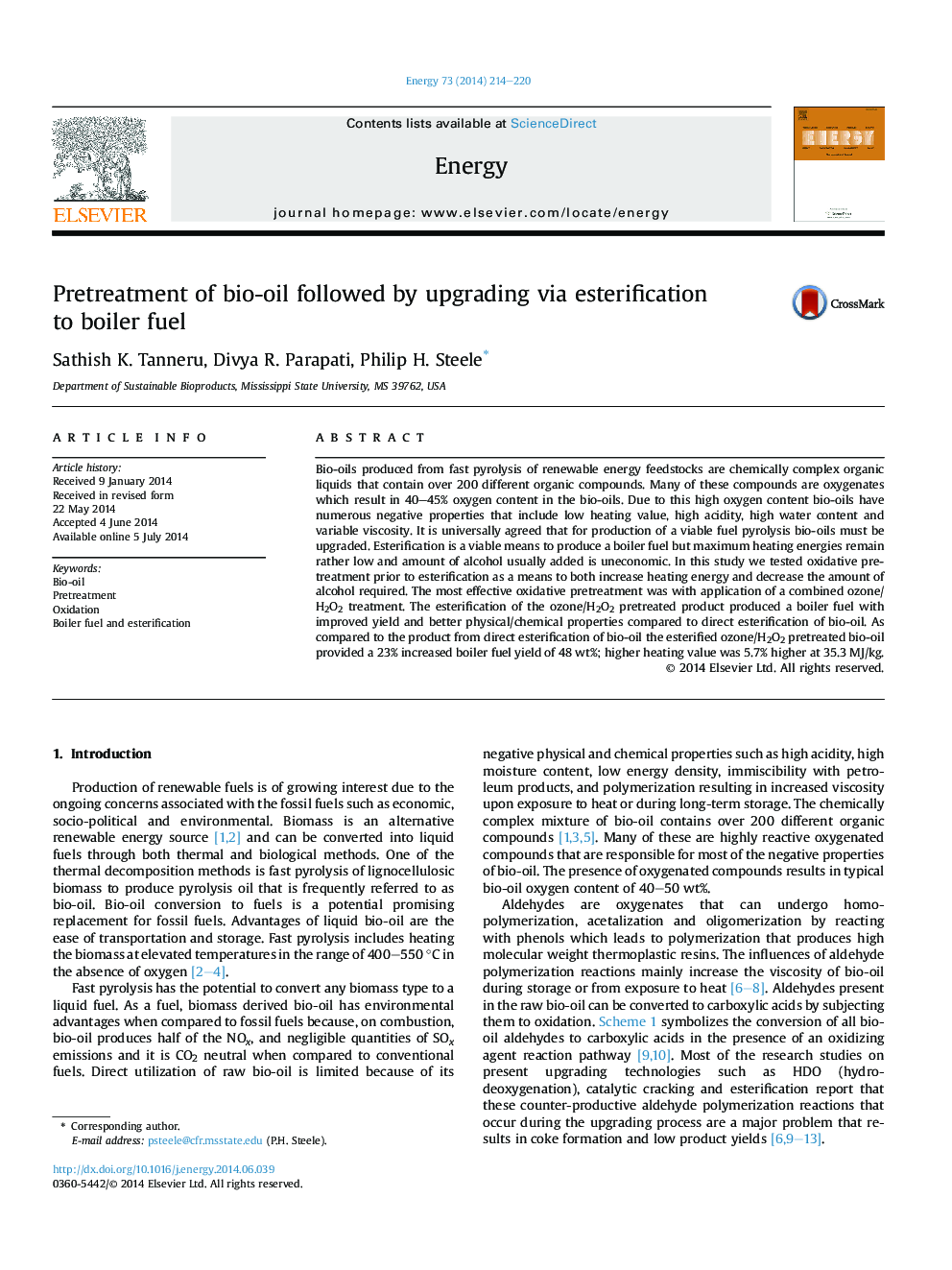| Article ID | Journal | Published Year | Pages | File Type |
|---|---|---|---|---|
| 8076993 | Energy | 2014 | 7 Pages |
Abstract
Bio-oils produced from fast pyrolysis of renewable energy feedstocks are chemically complex organic liquids that contain over 200 different organic compounds. Many of these compounds are oxygenates which result in 40-45% oxygen content in the bio-oils. Due to this high oxygen content bio-oils have numerous negative properties that include low heating value, high acidity, high water content and variable viscosity. It is universally agreed that for production of a viable fuel pyrolysis bio-oils must be upgraded. Esterification is a viable means to produce a boiler fuel but maximum heating energies remain rather low and amount of alcohol usually added is uneconomic. In this study we tested oxidative pretreatment prior to esterification as a means to both increase heating energy and decrease the amount of alcohol required. The most effective oxidative pretreatment was with application of a combined ozone/H2O2 treatment. The esterification of the ozone/H2O2 pretreated product produced a boiler fuel with improved yield and better physical/chemical properties compared to direct esterification of bio-oil. As compared to the product from direct esterification of bio-oil the esterified ozone/H2O2 pretreated bio-oil provided a 23% increased boiler fuel yield of 48Â wt%; higher heating value was 5.7% higher at 35.3Â MJ/kg.
Keywords
Related Topics
Physical Sciences and Engineering
Energy
Energy (General)
Authors
Sathish K. Tanneru, Divya R. Parapati, Philip H. Steele,
